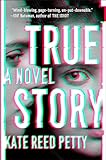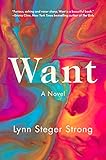Has there ever been a year I wanted to catalog less than the past one? With its relentless onslaught of bad news, pain, and longing, my attention and availability has been stretched thinner than ever. And, based on what I’ve heard from friends and gleaned from Twitter, I’m not alone. While I never stopped reading, I was never able to fully lose myself in books. There was always something tugging at the edges of my mind: Politics; the pandemic; my to-do list; our dirty apartment; loneliness; the pull of doomscrolling.
As I looked back on what I read this year, I noticed a few things: (1) I read very little backlist, (2) I read mostly women and non-binary writers, and (3) I read way more debuts than normal. All of these trends were unconscious but I found myself preoccupied with the third point. Given how strange this year has been, I started thinking about the debut writers of 2020—and the prospect (and then reality) of publishing during a pandemic. I imagine that many debuts didn’t get proper time in the spotlight so I decided to highlight the best ones I read this year. In no particular order:
Ann Lewinson’s debut novella, Still Life with Meredith, further solidified the fact that I absolutely love reading about women who are total disasters. Wish fulfillment in reverse, I guess. Lewinson’s debut follows an unnamed writer who spends her days waiting for her roommate to return to their storefront-turned-apartment. The book is also about Dutch still life paintings, gender, history, genital mutilation, and Marie Bonaparte’s sex life (among so many other things). Funny, curious, and strange, this slim book totally upends what a novel can be.
 In Memorial Drive, U.S. Poet Laureate and Pulitzer Prize-winner Natasha Trethewey writes about the moment that cleaved her life into before and after: the day her mother was murdered by her abusive husband and Trethewey’s stepfather. In her debut memoir, she explores her childhood growing up biracial in the deep south, the lead-up (and aftermath) of her mother’s death, and how that trauma informed the rest of her life. Lyrical, generous, and honest, Trethewey’s remarkable writing repeatedly moved me to tears. It’s a must-read.
In Memorial Drive, U.S. Poet Laureate and Pulitzer Prize-winner Natasha Trethewey writes about the moment that cleaved her life into before and after: the day her mother was murdered by her abusive husband and Trethewey’s stepfather. In her debut memoir, she explores her childhood growing up biracial in the deep south, the lead-up (and aftermath) of her mother’s death, and how that trauma informed the rest of her life. Lyrical, generous, and honest, Trethewey’s remarkable writing repeatedly moved me to tears. It’s a must-read.
 Melissa Faliveno’s debut essay collection Tomboyland completely knocked me sideways. Whether she’s writing about queerness, tornados, or gun culture, Faliveno’s careful and moving writing spirited me along. Usually collections have an essay or two that fall short of the others, but Tomboyland is strong from start to finish. My favorite essay “Motherland” is about the push and pull of motherhood. In that essay, she writes about the things her mother gave up in order to raise her. She writes: “As I got older, I began to understand that my mother made a choice. And with that choice came certain joys, but also grief—for the life that could have been, for all the lives that preceded her life as a mother. It took me a long time to understand that all choices are a sacrifice.” The last line took my breath away then and it still does now.
Melissa Faliveno’s debut essay collection Tomboyland completely knocked me sideways. Whether she’s writing about queerness, tornados, or gun culture, Faliveno’s careful and moving writing spirited me along. Usually collections have an essay or two that fall short of the others, but Tomboyland is strong from start to finish. My favorite essay “Motherland” is about the push and pull of motherhood. In that essay, she writes about the things her mother gave up in order to raise her. She writes: “As I got older, I began to understand that my mother made a choice. And with that choice came certain joys, but also grief—for the life that could have been, for all the lives that preceded her life as a mother. It took me a long time to understand that all choices are a sacrifice.” The last line took my breath away then and it still does now.
 True Story by Kate Reed Petty is one of the most unique novels I’ve ever read. In the genre-blurring debut, Alice Lovett—a 30-something ghostwriter—tries to make sense of a traumatic event in high school that completely upended her life. The novel shifts genre and point-of-view as Petty plays with storytelling, truth, and expectations. While there are clues littered throughout the book, the twist comes right at the end—and it’s very satisfying. It’s a book that demands to be reread and, more importantly, rewards it.
True Story by Kate Reed Petty is one of the most unique novels I’ve ever read. In the genre-blurring debut, Alice Lovett—a 30-something ghostwriter—tries to make sense of a traumatic event in high school that completely upended her life. The novel shifts genre and point-of-view as Petty plays with storytelling, truth, and expectations. While there are clues littered throughout the book, the twist comes right at the end—and it’s very satisfying. It’s a book that demands to be reread and, more importantly, rewards it.
 And if I had to choose one book I read this year that didn’t get enough attention overall it would be Nicola Maye Goldberg’s Nothing Can Hurt You. Less a novel than a set of interconnected stories, the debut opens with the body of Sara Morgan, a young college student, being found in the woods. Each chapter is told from different character’s point of view; their lives overlapping or intersecting with Sara in varying ways. Smart, funny, and thoughtful, Goldberg’s book explores the ways the world has become accustomed to violence against women—and how that violence ripples out and affects us all.
And if I had to choose one book I read this year that didn’t get enough attention overall it would be Nicola Maye Goldberg’s Nothing Can Hurt You. Less a novel than a set of interconnected stories, the debut opens with the body of Sara Morgan, a young college student, being found in the woods. Each chapter is told from different character’s point of view; their lives overlapping or intersecting with Sara in varying ways. Smart, funny, and thoughtful, Goldberg’s book explores the ways the world has become accustomed to violence against women—and how that violence ripples out and affects us all.
 And, because it’s been an awful year, I’m ignoring the premise of my own entry and including a few of my favorite non-debut titles of the year. Some standouts include Lydia Millet’s A Children’s Bible, Lori Gottlieb’s Maybe You Should Talk to Someone, Gabrielle Union‘s We’re Going to Need More Wine, Kelly Yang’s Front Desk, and John Carreyrou’s Bad Blood. And, finally, Want by Lynn Steger Strong, which was my favorite reading experience of the year. It’s not an exaggeration to say I’ve thought about that novel nearly every day since I finished it. I feel lucky to have read it—and that’s about as good as it gets these days.
And, because it’s been an awful year, I’m ignoring the premise of my own entry and including a few of my favorite non-debut titles of the year. Some standouts include Lydia Millet’s A Children’s Bible, Lori Gottlieb’s Maybe You Should Talk to Someone, Gabrielle Union‘s We’re Going to Need More Wine, Kelly Yang’s Front Desk, and John Carreyrou’s Bad Blood. And, finally, Want by Lynn Steger Strong, which was my favorite reading experience of the year. It’s not an exaggeration to say I’ve thought about that novel nearly every day since I finished it. I feel lucky to have read it—and that’s about as good as it gets these days.









